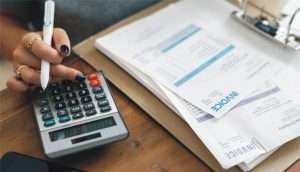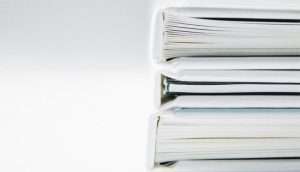In this article, you’ll learn about the threshold of tax-free income, and various tax reliefs and allowances that you’re legally entitled to, and how these allowances can increase your tax-free threshold.
Should I always pay tax on my income?
No! You’ll only pay tax on your income if it exceeds the threshold of the Personal Allowance.
This tax-free threshold is dubbed as “Tax-free Personal Allowance” by the tax authorities. For the year 2020-21, the standard tax-free personal allowance stands at £12,500. It means that if your income is below £12,500, then HM Revenue & Customs will not charge you any income tax.
It is pertinent here to mention that your basic personal allowance can increase if you’re entitled to various claims and reliefs, and this article deals with the very same topic. So, stay with us to get your tax bill reduced!
What’s the difference between tax allowances and tax reliefs?
Both these terms serve the very same purpose, i-e they reduced your tax bills and save your hard-earned money. But there’s a difference between the two that you must know.
Tax Allowances: Tax allowances entitle you to earn a certain sum of cash before paying the income tax. In simple words, tax allowances increase the threshold of tax-free income and hence the limit of your personal allowance.
Tax relief: You can claim these reliefs to slash your income tax bill.
Tax allowances and thresholds for tax year 2020-21
| Tax Year | 2020-21 |
| Tax-free Personal Allowance | £12,500 [ the threshold remains valid if your income does not exceed £100,000 following which you’ll get deprived of £1 in terms of personal allowance for every £2 that you’ll earn. |
| Basic-rate taxpayer – 20 | Income up to £37,500 |
| Higher-rate taxpayer – 40 | Taxable income exceeding £50,000 |
| Additional rate taxpayer – 45 | Taxable income exceeding £150,000 |
| Maximum married couple allowance – born before April 6th, 1935 only | £9,705 |
| Blind person’s allowance | £2500 |
| Capital Gains Tax threshold | £12,300 |
| Inheritance Tax Threshold | £325,000 plus additional £175,000 if family house is included by estate |
Personal Allowance for the tax year 2020-21
The amount that you are allowed to receive without being charged tax is called a personal allowance or tax-free personal allowance. It is also called standard personal allowance or basic personal allowance.
For the tax year 202-21, authorities have set tax-free personal allowance at £12,500. Authorities did not change the threshold as it was the same for the previous tax year.
As far as the standard personal allowance is concerned, it is the same for every taxpayer.
If you’re residing in Wales, Northern Ireland, or England, then you’ll pay income tax at a rate of 20 on earnings between £12,500 to £50,000. However, if your income surpasses the £50,000 limit, then you’ll be charged income tax at a higher-rate threshold of 40.
For Scotland, the income tax rates vary slightly. If you’re living in Scotland and earn anywhere between £12,500 to £14,585, then you’ll pay income tax at the starter rate of 19. Likewise, if your income falls anywhere between £14,585 to £25,158, then you’ll be charged basic income tax rate of 20.
For those earning anywhere between £25,158 to £43,430 in Scotland, the tax rate is 21 and is called the intermediate income tax rate. Similarly, if you earn anywhere between £43,430 to £150,000, then you’ll pay income tax at a higher rate of 41. For those earning over £150,000, they’ll pay income tax at an additional rate of 46.
What if my Income exceeds the £100,000 threshold?
If your income exceeds the £100,000 threshold, then you lose £1 of your personal allowance for every £2 that you earn above £100,000, no matter what is your age. It translates into a complete waiver of personal allowance when your income reaches or exceeds the £125,000 threshold.
In laymen’s terms, when your income reaches or exceeds the £125,000 threshold, it means you’ll be no longer entitled to any personal allowance, and the whole of your income will be taxed.
Am I eligible for a marriage allowance?
If you are in a civil partnership or legally married, then you can get tax relief under “marriage allowance”.
To claim marriage allowance, the low earner spouse can transfer as much as £1,250 of his/her personal allowance to a higher-earner partner. Then, the higher-earner –who is a basic-rate taxpayer–will be eligible for a tax credit that will be equal to the same amount that the low-earner has transferred.
This transferred amount is then deducted from the net amount of tax that a higher-earner usually pays.
To be eligible for a marriage allowance, the income of the lower-earner must be less than the basic allowance that is £12,500 for the ongoing tax year.
Key takeaways:
- The income of low-earner spouse should not exceed the threshold of basic personal allowance that is £12,500 for TY 2020-21
- The earnings of the high-earner spouse should be anywhere between £12,500 to £50,000.
As far as Scotland is concerned, the figures are different due to the difference in thresholds. To be eligible for a marriage allowance in Scotland, the earnings of a high-earner spouse should not exceed £43,430.
Personal Savings Allowance
Personal allowance means that you can earn a specific sum of money from interest on savings every year. The threshold varies for each tax slab.
If you are a basic rate taxpayer, then you are allowed to extract up to £1000 in terms of savings interests in TY 2020-21.
Likewise, if you are a higher-rate taxpayer, then you can earn up to £500 in terms of savings interest in TY 2020-21.
There’s no such relief if you are an additional rate taxpayer.
All payments regarding savings interest will be gross. It means that your building society or bank cannot deduct tax on savings interest anymore.
All interest from savings will be paid gross, which means tax will no longer be deducted by your bank or building society.
You are authorised to use your personal savings allowance on interest earned from:
- Peer-to-peer lending interest
- Corporate or government bonds
- Interest distributions, i-e income from authorised unit trusts, bond trusts, investment trusts, and income from open-ended investment companies.
HM Revenue & Customs will tax income arising from loan-based investments as interest whereas it will tax profits emanating from equity firms as dividend income.
Dividend Allowance
Dividend allowance is among many tax-free income and allowances through which you can increase your tax-free threshold.
An amount up to £2000 that you’ll receive in terms of dividends is not taxable. It is called dividend allowance. It was the same for the previous tax year.
In the tax year 2017-18, the tax-free threshold for dividend allowance was a whopping £5000.
For the amount exceeding £2,000, you’ll pay tax. The tax rate is different for each tax slab.
At the basic rate tax slab, you’ll pay tax on dividends at a rate of 7.5.
At a higher rate tax slab, you’ll be charged tax at 32.5.
And, at additional rate tax slab, you’ll pay tax at a rate of 38.1.
Blind Person Allowance
If you, your spouse, or civil partner have severely impaired eyesight, or you are partially or fully blind, then the threshold of your tax-free income or personal allowance increases.
Under the blind person allowance, you get another £2,500 and your basic personal allowance soars to £15,000. For the tax year 2019-20, the threshold of blind person allowance was £2,450.
Fortunately, the blind personal allowance works the same way as does the marriage allowance. It means that if your income is less than the personal allowance, then you are allowed to transfer unused allowance to your civil partner or spouse.
If you’re living in Wales or England, then to be eligible for blind person allowance, you are required to first get yourself attested as blind. After getting the certification of the blind, you need to appear on the register of the local authority to claim relief.
When it comes to Northern Ireland or Scotland (tax-free income and allowances), you will be eligible to claim relief under a blind person allowance even if you are not certified. But authorities need to ensure that you cannot perform those tasks that involve eyesight.
Property and Trading allowances
Trading allowance is for those individuals who earn cash through trading activities. For the first £1,000 generated from these activities, there will be no tax.
Also, if you make money up to £1,000 from your property, you won’t be charged any tax. This may include renting out a room for very short durations or renting out portions for events.
However, if your rental income is significantly more than £1,000, then you’ll be charged tax.
You can claim property and trading allowances simultaneously.
Keeping yourself abreast of all these tax-free income and allowances is a herculean task, something that is impossible for a layman. But by keeping records of these allowances and reliefs, one can save a significant portion of his hard-earned money and can get his tax bill reduced legally.
The solution lies in seeking the services of a reliable tax firm like IBISS&CO. These guys are in the business for over a decade now and with a combined experience surpassing 25 years, IBISS&CO has already served thousands of happy clients, the testimonials of which are available on the website.
IBISS&CO have helped their customers in the reduction of their tax bills. They can do the same for you. Just contact them to save your hard-earned money.




